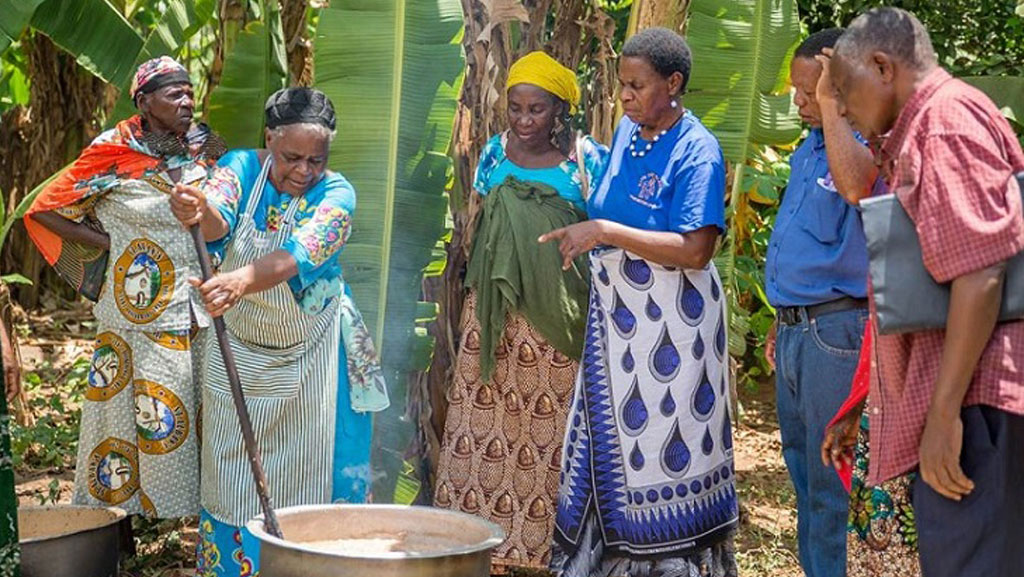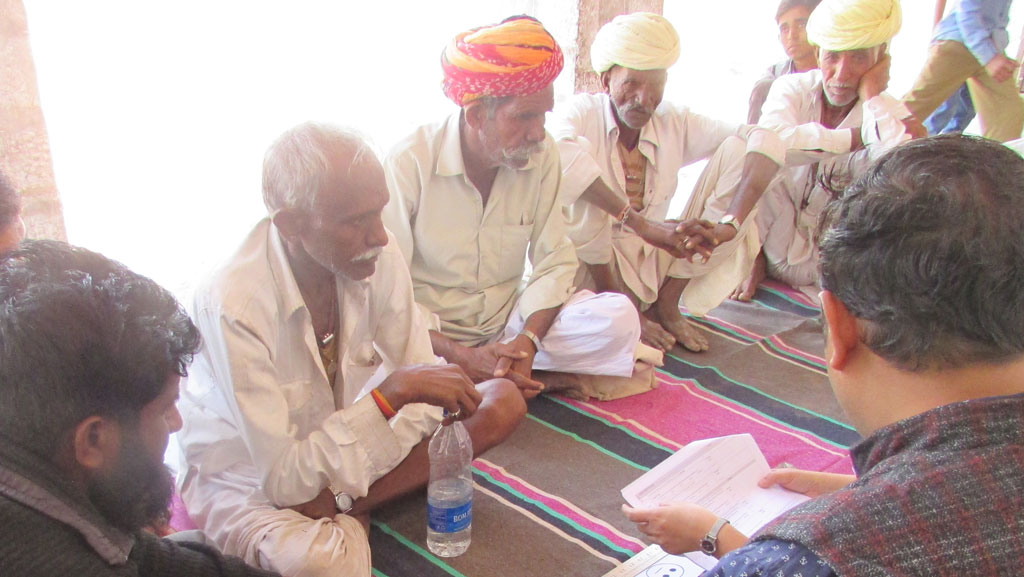Another example related to rare diseases is an exclusive license agreement with King's College London for the development of a series of adeno-associated virus (AAV) gene therapy vectors. Of the various technical approaches to deliver a therapeutic gene, the use of viral vectors is the most common approach currently in commercial development, and of the different viral vectors available, AAV is most frequently used. As part of the collaboration, Pfizer will support additional research to further development of the AAV vector platform and its application in gene therapy. This research is designed to apply insights into the basic understanding of the virus to help overcome the challenges of production for clinical use.
Raising Awareness and Bringing Treatment for TTR-FAP Patients in Brazil
Pfizer is also committed to working closely with many governments to address country-specific health concerns.
Transthyretin familial amyloid polyneuropathy (TTR-FAP) is a rare neurological disorder that can rapidly become debilitating. If a patient suffering from TTR-FAP does not receive disease-modifying treatment, they typically require assistance with walking five-to-six years after initial symptoms manifest. As TTR-FAP symptoms progress, patients are often unable to care for themselves, and may become bedridden or require hospitalization. When left untreated, people with TTR-FAP die within 10 years of symptom onset, on average.
Brazil is home to many people of Portuguese and Japanese ancestries, and TTR-FAP is more common among families of this descent. Given the high prevalence estimates of TTR-FAP in Brazil, the Brazil Ministry of Health has designated TTR-FAP as a top priority in rare diseases, highlighting the need for treatment advances.
In November 2016, Brazilian authorities granted regulatory approval to Pfizer's Vyndaqel® (tafamidis) for the treatment of early- and intermediate-stage TTR-FAP. Vyndaqel is designed to slow the formation of abnormal TTR proteins and subsequent amyloid deposits that can be present in nerves and other organs, resulting in neurodegeneration and loss of normal function. Vyndaqel is also approved in the European Union, Japan, Mexico, Argentina, Israel and South Korea.
In addition, to raise awareness of TTR-FAP, Pfizer Brazil launched a campaign in 2016 targeting levels of Brazilian society in partnership with the Brazilian Academy of Neurology. With Pfizer's support, many celebrities, including sports anchors, presenters, singers and famous soccer players like Marcos Evangelista de Morais (known as Cafu), were engaged in the cause to "pause FAP.” These celebrities were asked to “pause” their social media activity and use the #pausanapaf hashtag to draw attention to the condition and engage others in elevating the issue.
Learn more about our work in rare diseases.
Leading the Fight Against NCDs
Pfizer is collaborating to address leading public health challenges including smoking, cancer, cardiovascular disease and diabetes through unique partnerships.
HelpAge International and Pfizer have worked together since 2012 to prevent and reduce the impact of non-communicable diseases (NCDs) among older people in Africa, Asia and Latin America.
Over the last three years, HelpAge has developed a tool to gather data on the health of older persons and the quality, affordability and accessibility of their health services. The initiative, which has been implemented in eight countries in Africa, Latin American and Asia, includes efforts in Tanzania and Uganda to build intergenerational links that improve health among all ages.
The recent development of a digital approach to data collection, analysis and reporting will enable HelpAge to collect and access better quality data in real time, so insights can better inform health program and policy development. Additional technology components that further support the expansion and integration of this work include an online training program for systematic implementation of the tool and a new website that supports and promotes online collaboration among the HelpAge network of organizations, external partners and stakeholders.
NCDs like cancer and heart disease kill 38 million people every year – three quarters of whom are in low- and middle-income countries. Long committed to turning this around, Pfizer is now boosting our efforts by joining 21 of our industry peers and advocacy partners to create a coalition called Access Accelerated.
Learn more about Access Accelerated.
All of these initiatives stress the need to raise awareness and support for healthy life choices, such as increased access to nutritious food and the reduction of health risk behaviors to prevent NCDs. They also encourage collaboration with health providers at local and national levels to improve prevention, early diagnosis, follow-up and treatment of NCDs, and help improve data collection and analyses to better inform programs and policies. The initiative also continues to build a body of data and knowledge around the health of older people, as well as effective program and policy interventions that address UN Sustainable Development Goal (SDG) 3 - specifically SDG 3.4 (NCDs), SDG 3.8 (Universal Health Coverage) and/or SDG 3.c (Health Workers).

HelpAge is advancing its healthy aging work to a new level with the implementation of an initiative called “Collaborating for Health.” This program includes an effort to co-design health programs and implement policy advocacy through a systematic process to develop health solutions with and for older people - keeping in line with the World Health Organization's framework of “people-centered care.”
This innovative approach to community collaboration will draw on the strengths of older people's groups, building the capacity of older people in collaboration with key stakeholders – ranging from Ministries of Health and other NGOs to health clinic directors, community health care workers and home-based caregivers.

Pfizer and the International Federation of Red Cross and Red Crescent Societies (IFRC), the world's largest humanitarian network, have joined together on a project to leverage our respective expertise and resources in three areas: to further disseminate the IFRC's 4HealthyHabits tools for NCD prevention, to develop and test evidence-based tools to support healthy aging at the community level, and to advocate jointly for NCD prevention and control and for healthy aging. Find out more about 4HealthyHabits.
Learn more about how we are fighting against NCDs.
Creating Unique Approaches to R&D through Visiting Scientist Program
This year, Pfizer entered into a multi-year arrangement with the Weizmann Institute of Science in Rehovot, Israel – one of the world's top-ranking multidisciplinary research institutions – and its technology transfer company, Yeda Research and Development Co., Ltd. Pfizer is supporting the newly established Institute for Medicinal Chemistry (IMC) in the Nancy and Stephen Grand Israel National Center for Personalized Medicine (G-INCPM) on the Weizmann Institute campus by placing a Pfizer medicinal chemist (rotating on an approximately yearly basis) at the Institute to assist with advancing target selection and high-throughput screening, as well as leading development campaigns for programs that enter the IMC.
Building a Large-Scale, Blood-Profiling Atlas for Oncology Patients
In 2016, we launched a “Blood-Profiling Atlas Initiative” where we collaborated with a variety of partners to create an open database for liquid biopsies to potentially accelerate blood-profiling diagnostic technologies.
Advancing Care for Patients through Targeted and Innovative Collaborations
Immuno-oncology (IO) has been fueled by numerous clinical trial successes in recent years and has already transformed traditional approaches to cancer treatment. As our understanding advances and IO therapies are implemented into routine treatments for cancer, many challenges and complexities remain. Pfizer is collaborating with Friends of Cancer Research and EMD Serono to lead the IO working group – the first and only group of its kind – and bring together more than 30 leaders in the community to address policy issues in order to accelerate the delivery of IO treatments to patients.
Improving Access to Immunization and Family Planning Services
Through a collaboration with the Bill & Melinda Gates Foundation and the Children's Investment Fund Foundation, we are helping to broaden access to Pfizer's long-acting injectable contraceptive, Sayana® Press (medroxyprogesterone acetate), for women most in need in some of the world's poorest countries. Learn more about this collaboration.
Through our participation with Gavi, the Vaccine Alliance, for pneumococcal vaccines, Pfizer has committed to supply up to 740 million low-cost doses of critical vaccines to countries that carry a significant burden of pneumococcal disease through 2025. Learn more about this collaboration and our work in vaccines.
Pfizer is proud of our ongoing partnership with Gavi to help immunize an additional 300 million of the world's poorest children against life-threatening diseases by 2020, potentially preventing more than five million premature deaths. This partnership means many millions of infants have an increased chance of reaching their fifth birthday.
Spreading Awareness for Vaccinations across Generations
Pfizer forged a partnership with Generations United Inc., to elevate global awareness of vaccinations across all generations. Together, we are working to accelerate patient impact in the prevention of disease, providing tools and resources, such as discussion guides, to encourage intergenerational conversations about getting vaccinated. Learn more about this collaboration.



